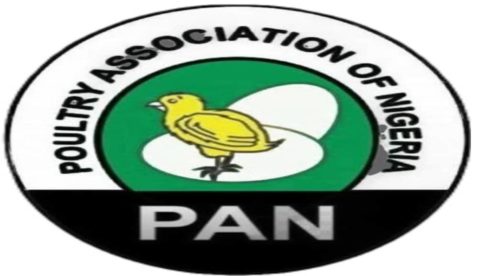The Poultry Association of Nigeria (PAN) has issued a warning about a potential surge in egg prices if urgent measures are not taken to support local poultry farmers. According to the association, the price of a crate of eggs, which currently stands at N5,500, could rise to N10,000. The price increase is attributed to a combination of rising costs in transportation and poultry feed, which have drastically affected production.
PAN’s concerns come at a critical time when many Nigerians are already grappling with economic challenges. The removal of fuel subsidies has contributed significantly to the cost of transportation, making it more expensive for farmers to move their products. The association has called on the government to intervene before the situation worsens, warning that such price increases could severely impact the average Nigerian’s ability to access affordable protein.
Fuel Subsidy Removal and Rising Transportation Costs
One of the key factors driving up the price of eggs is the high cost of transportation, exacerbated by the removal of fuel subsidies. This policy change has led to skyrocketing fuel prices, which in turn have increased the cost of transporting poultry products across the country. Farmers are struggling to cope with these additional costs, which are ultimately being passed on to consumers in the form of higher egg prices.
The Poultry Association of Nigeria has urged the federal government to consider policy interventions that could ease the burden on farmers, such as subsidies or tax reliefs for agricultural producers. Without such measures, the cost of transportation is likely to remain a significant obstacle, further driving up food prices in the country.
Increasing Feed Prices: Another Blow to Poultry Farmers
In addition to transportation costs, poultry farmers are also facing soaring prices for feed. Feed accounts for a substantial portion of production costs, and recent hikes by feed millers have left farmers struggling to stay afloat. The rising cost of feed is being driven by several factors, including inflation and supply chain disruptions, making it difficult for poultry producers to maintain affordable egg prices.
PAN’s Secretary for the FCT chapter, Musa Hakeem, highlighted these challenges during a press briefing to mark World Egg Day on October 12, 2024. He emphasized that unless urgent action is taken to stabilize feed prices, many poultry farmers could be forced out of business, which would lead to further price increases and potential shortages in the egg supply.
PAN Calls for State of Emergency on Egg Production
Given the severity of the situation, PAN has called on the federal government to declare a state of emergency on egg production. According to Musa Hakeem, such a declaration would enable the government to focus on supporting the poultry industry, which is critical for the country’s food security and public health. Eggs are an essential source of protein for millions of Nigerians, and a sharp decline in egg production could have serious consequences for nutrition and overall health.
PAN has stressed that Nigeria cannot afford to rely on imported eggs, as this would make the country vulnerable to global market fluctuations and further increase prices. The association is urging the government to prioritize local production and implement measures to support farmers, such as subsidies for feed and transportation, as well as investment in infrastructure to improve efficiency in the supply chain.
Compassionate Pricing: Farmers Absorb Costs Despite Challenges
Despite the significant challenges facing poultry farmers, PAN has opted to keep the current price of a crate of eggs at N5,500, even though production costs suggest the price should be much higher. According to Musa Hakeem, the association is choosing to show compassion for consumers by not passing the full burden of increased costs onto them. Hakeem pointed out that if the prices of feed and transportation were directly factored in, the price of eggs could reach N10,000 per crate.
This decision underscores the importance of eggs in the Nigerian diet and the association’s recognition of the role they play in public health. PAN is working to strike a balance between the financial sustainability of poultry farms and the affordability of eggs for consumers. However, without external support, maintaining this balance may become increasingly difficult in the long term.
The Need for Government Intervention to Protect Food Security
PAN’s warning highlights the urgent need for government intervention to protect Nigeria’s poultry industry and ensure food security. With egg prices at risk of skyrocketing, there is growing concern about the country’s ability to meet the nutritional needs of its population. Eggs are a key source of affordable protein, and any disruptions in supply or price increases could have significant public health implications, particularly for low-income families.
PAN has called on the federal government to implement targeted policies that can help stabilize the poultry sector, such as subsidies for feed and transportation, investment in local feed production, and improved access to credit for farmers. By supporting poultry farmers, the government can help ensure that egg production remains sustainable and affordable for all Nigerians, thereby safeguarding both food security and public health.
Table of Contents
Discover more from OGM News NG
Subscribe to get the latest posts sent to your email.














